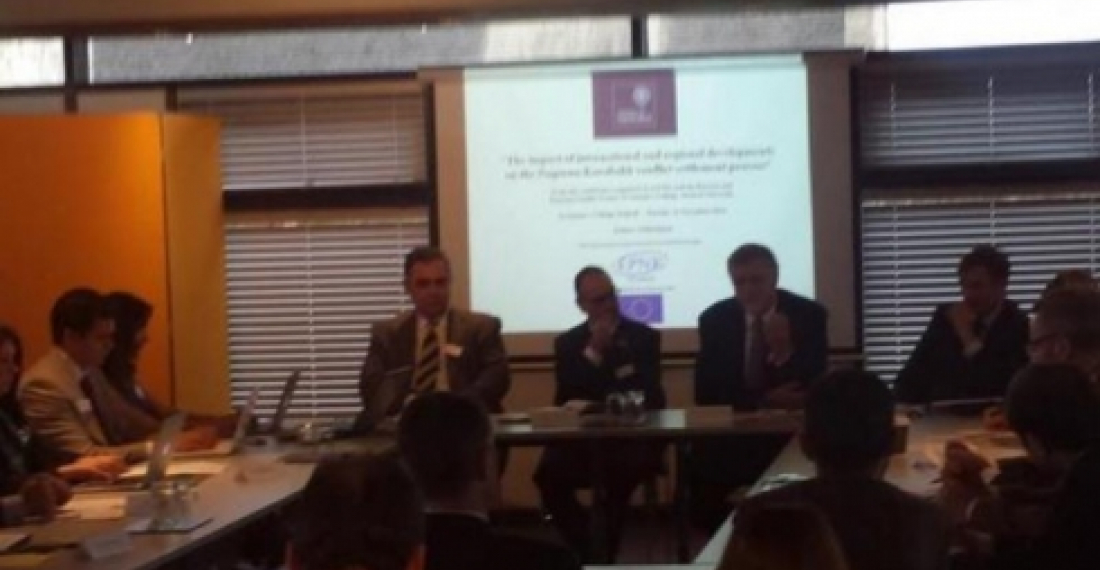Армянские и азербайджанские дипломаты, ученые и активисты гражданского общества, а также коллеги из ряда европейских стран, 11 ноября собрались в Оксфорде на конференцию на тему "Влияние международных и региональных событий на процесс урегулирования нагорно-карабахского конфликта".
Однодневная конференция была организована LINKS и Центром исследований России и Евразии при колледже Святого Антония Оксфордского университета.
Так как конференция была открыта в одиннадцатом часу, в одиннадцатый день, одиннадцатого месяца - конференция началась с двух минутного молчания, посвященного всем, кто погиб в войнах прошлого века.
Среди выступавших на конференции были: профессор Дэн Хили, директор Центра изучения России и Евразии при Колледже Святого Антония Оксфордского университета; Деннис Саммут (директор LINKS, Оксфордский университет); Доктор Уолтер Кемп, (Международный институт мира, Вена); Посол Герберт Зальбер (специальный представитель Европейского Союза по Южному Кавказу и конфликтам в Грузии). Профессор Рой Аллисон (RESC, Оксфордский университет) Ричард Киракосян (Центр краеведения, Ереван), посол Хазар Ибрагим (Постоянный представитель Азербайджана в НАТО), Аманда Пол (из Европейского центра политики, Брюссель). Доктор Сабина Фрейзер (из Атлантического совета центра Евразия, Вашингтон, округ Колумбия); Аваз Гасанов (Общество гуманитарных исследований, Баку); Масис Маилян (Общественный совет по внешней политике и безопасности, Степанакерт); Профессор Нейл Макфарлейн (Департамент международных связей, Оксфордский университет); Доктор Лоуренс Броерс ( Caucasus Program Associate, Ресурсы примирения, Лондон); Орхан Акперов, (Совет азербайджанской общины Нагорного Карабаха, Баку); и Крейг Олифант (Безопасный мир, Лондон).
Источник: commonspace.eu
фото: открытие конференции по урегулированию нагорно-карабахского конфликта, состоявшейся в Оксфорде 11 ноября 2014 года.






